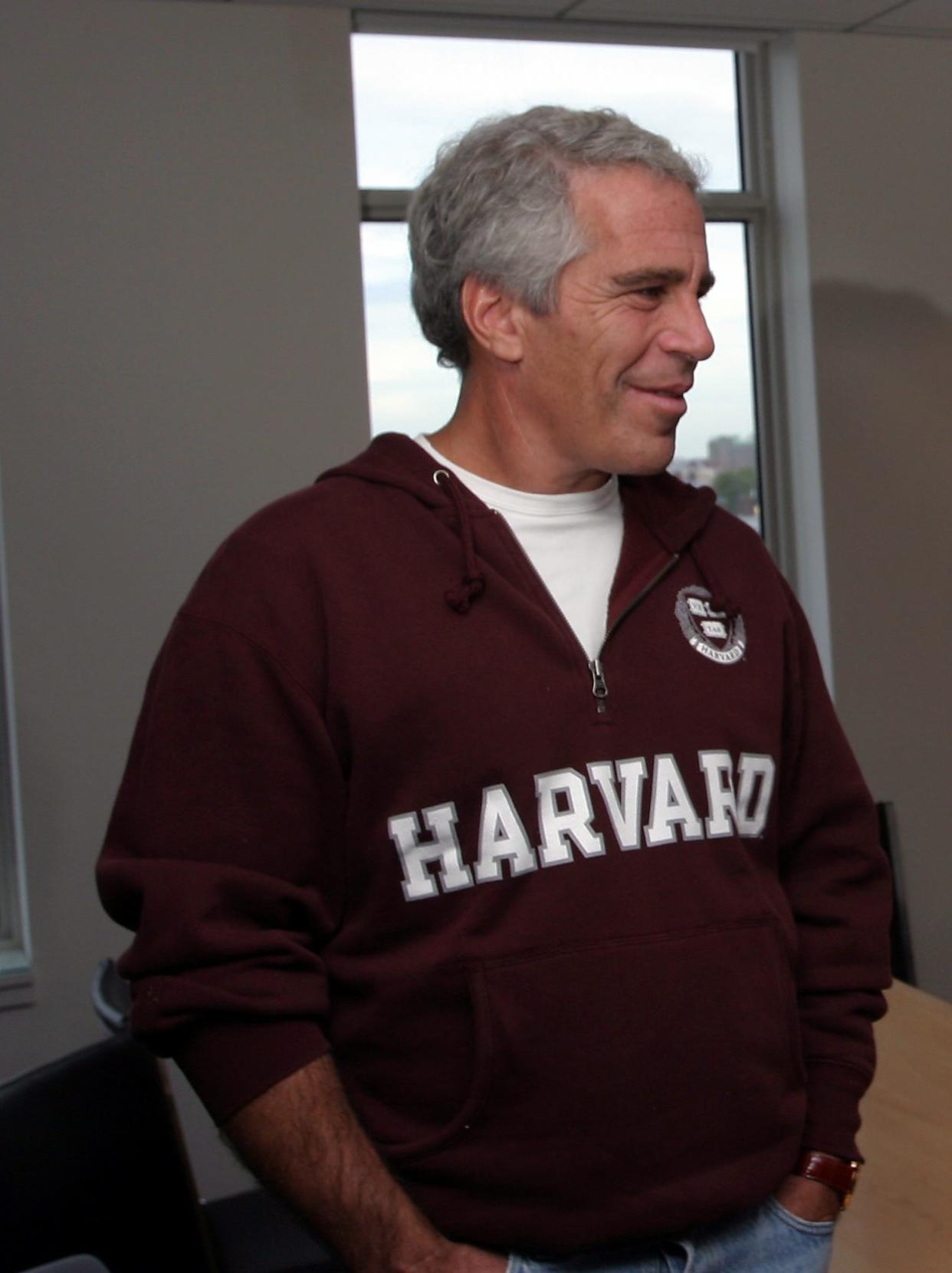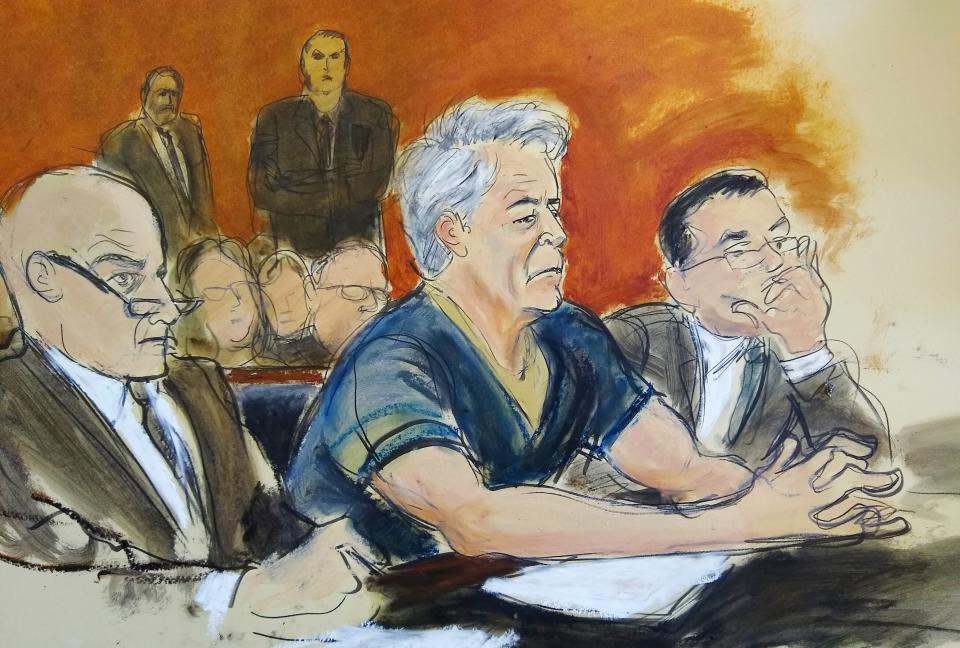Harvard has 'no plans' to return Jeffrey Epstein's $6.5M gift

BOSTON — Though he's not an alum of Harvard University, registered sex offender Jeffrey Epstein has been a generous donor to the Ivy League school, most notably contributing $6.5 million in 2003 to fund a professor's research program on evolutionary dynamics.
Now, as the wealthy financier faces new federal sex-trafficking charges, Harvard says the university is not giving the money back even as his donations are under new scrutiny.
"The university has no plans to return the $6.5 million to Epstein," a Harvard spokesperson said Thursday. A Harvard source told USA TODAY that the funds were spent for their intended within a few years after they were received.
Epstein, 66, is accused of sexually exploiting and abusing minor girls at his homes in Manhattan and Palm Beach, Florida between 2002 and 2005.
While he never earned a college degree, Esptein has donated money to individual scholars and multiple academic institutions, topped by Harvard.
More: 'We proceeded appropriately': Acosta defends role in controversial Jeffrey Epstein plea deal
Epstein's alleged targets: 'The more vulnerable the better,' investigator says
The $6.5 million donation funded the work of mathematical biologist Martin A. Nowak, who established Harvard's Program for Evolutionary Dynamics to research the mathematical principles that guide evolution. Nowak still operates the center.
The school gave also defended Epstein's $6.5 million donation in 2006, when the hedge-fund manager was charged with sex crimes in Florida.
The university told the student-run Harvard Crimson newspaper in 2006, "Mr. Epstein’s gift is funding important research using mathematics to study areas such as evolutionary theory, viruses, and cancers. The university is not considering returning this gift.”

The Crimson reported in 2003 that Nowak had met Epstein after being introduced four years before by Nathan Myrvolb, then-chief scientific officer for Microsoft. The newspaper reported that Nowak and Epstein "formed a close friendship" and that Epstein frequently funded the professor's studies.
Nowak, professor of mathematics and of biology and director of the evolutionary dynamics program, could not be reached for comment.
At the time of the donation, the Crimson reported Epstein's donation as a $30 million gift to Nowak's program. The figure has been cited in several subsequent media reports. But a Harvard source familiar with the donation disputed that figure to USA TODAY.
More: Who is Jeffrey Epstein, the sex offender charged with sex trafficking girls as young as 14?
Epstein was known to mingle with highly regarded scientists, CEOs, politicians and thinkers. He has ties to prominent Harvard figures, led by Alan Dershowitz, a friend and past lawyer of the financier. One woman who's identified herself as an Epstein victim has alleged he directed her to have sex with Dershowitz. Dershowitz, a Harvard emeritus law professor, has denied the allegations.
Epstein was also close to former Harvard President Lawrence Summers, the Crimson reported, with the two men serving on two international trade organizations with each other. Epstein also served on the board of the Harvard Society of Mind, Brain, and Behavior.
Esptein's past financial donations to Harvard extend beyond the $6.5 million gift.
In a 2003 profile on the "reclusive investor Epstein," the Crimson described him as "a long-time, low-profile donor" who did not publicize contributions before the contribution to Nowak.
Epstein contributed money for the construction of a new campus building, Rosovsky Hall, which was named after his friend, Henry Rosovsky, a former dean of the university’s Faculty of Arts and Sciences, the Chronicle of Higher Education reported.
His foundation from 1999 to 2001 helped fund research of Anne Harrington, a history of science professor, on the placebo effect. She was one of several scholars whose work Epstein took an interest in.
Harrington called Epstein's actions "terrible" in an interview last year with the Crimson. "Had I known then even a hint of what we all have subsequently learned about him, I never would have accepted it," she said.
More: Jeffrey Epstein: How the sex-trafficking investigation could shed light on corruption
Stephen Kosslyn, a Harvard psychologist, now with emeritus status, told New York Magazine in 2002 that Epstein helped fund an experiment he led disproving Tibetan monks were capable of holding a distinct image in their minds for 20 minutes straight.
"He is amazing. Like a honeybee," Kosslyn told the magazine for the story titled "International Money Man of Mystery." "He talks to all these different people and cross-pollinates. Just two months ago, I was talking to him about a new alternative to evolutionary psychology. He got excited and sent me a check."
The Daily Beast reported earlier this year that Epstein launched a private foundation called “Gratitude America, Ltd." in which he continued to make donations even after he was pleaded guilty to soliciting prostitution in 2018.That included a $150,000 check to the Massachusetts Institute of Technology in 2017 from the foundation and a $50,000 contribution to the University of Arizona Foundation. Newsweek reported that neither university commented when asked about the donations.
Harvard this spring removed law professor Ronald Sullivan as a faculty dean after students protested his providing legal defense for Harvey Weinstein in the Hollywood media mogul's fights multiple sex-crime charges in court. But Harvard has said the decision was "not directly related" to Sullivan's defense of Weinstein but rather his failure to fulfill responsibilities of the Winthrop House that he led.
Reach Joey Garrison on Twitter @joeygarrison.
This article originally appeared on USA TODAY: Jeffrey Epstein donated $6.5M to Harvard and they're not returning it

